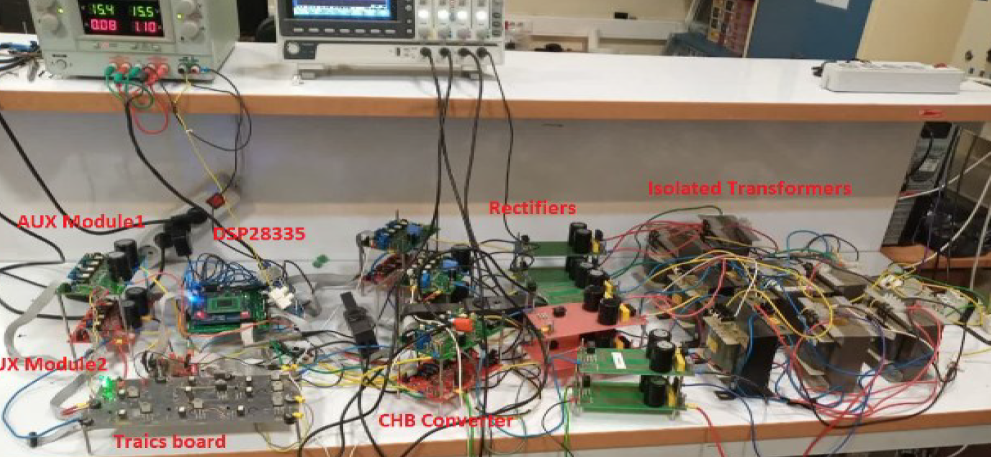
02161115044

The purpose of this thesis is to improve the fault tolerance method based on the hardware of the CHB converter. In this thesis, three new fault tolerance methods for the CHB converter are presented. These three methods produce balanced line-line voltages at the output of the CHB converter without isolating the healthy cells. The first presented method has the capability of compensating a fault in each of phases a, b or c of the CHB converter. Due to the use of a capacitor instead of an independent power source in the dc link of the auxiliary cell used in this proposed method, in terms of the number of parts used, this method has used the least number of parts among the presented methods. The auxiliary cell used in this method is added to the faulty phase after the fault occurs, and its DC link capacitor is charged up to the rated value in 63 milliseconds In this method, a new method has been presented to keep the DC link capacitor voltage of the auxiliary cell balanced. The second and third methods presented in this thesis are proposed for two-faults compensation in the CHB converter. These methods have the ability to replace two faulty cells with two auxiliary healthy cells in case of two faults in each of phases a, b or c of the CHB converter. It should be noted that all three proposed methods preserve the modularity of the converter, which preserves the reliability of the converter after the fault occurs. In this thesis, first, the cascaded H-bridge converter are introduced and the reason of its selection in comparison to similar converters is discussed. Then the challenges of its tolerability against fault and proposed solutions in related articles are observed. Finally, the results of simulation and implementation of the presented methods on the laboratory sample are discussed and reviewed, and based on this, their accuracy and efficiency are confirmed.

Power Electronics and Energy Systems Laboratory was established in 2010 with the aim of training efficient engineers and researchers. In this educational and research environment, specialized fields such as the design of power electronic systems, including all types of power supplies, inverters and rectifiers, high and multi-level power converters, types of high voltage or HV systems, energy conversion systems, etc. are under study and research.

Design: Mahyan
Leave a Reply